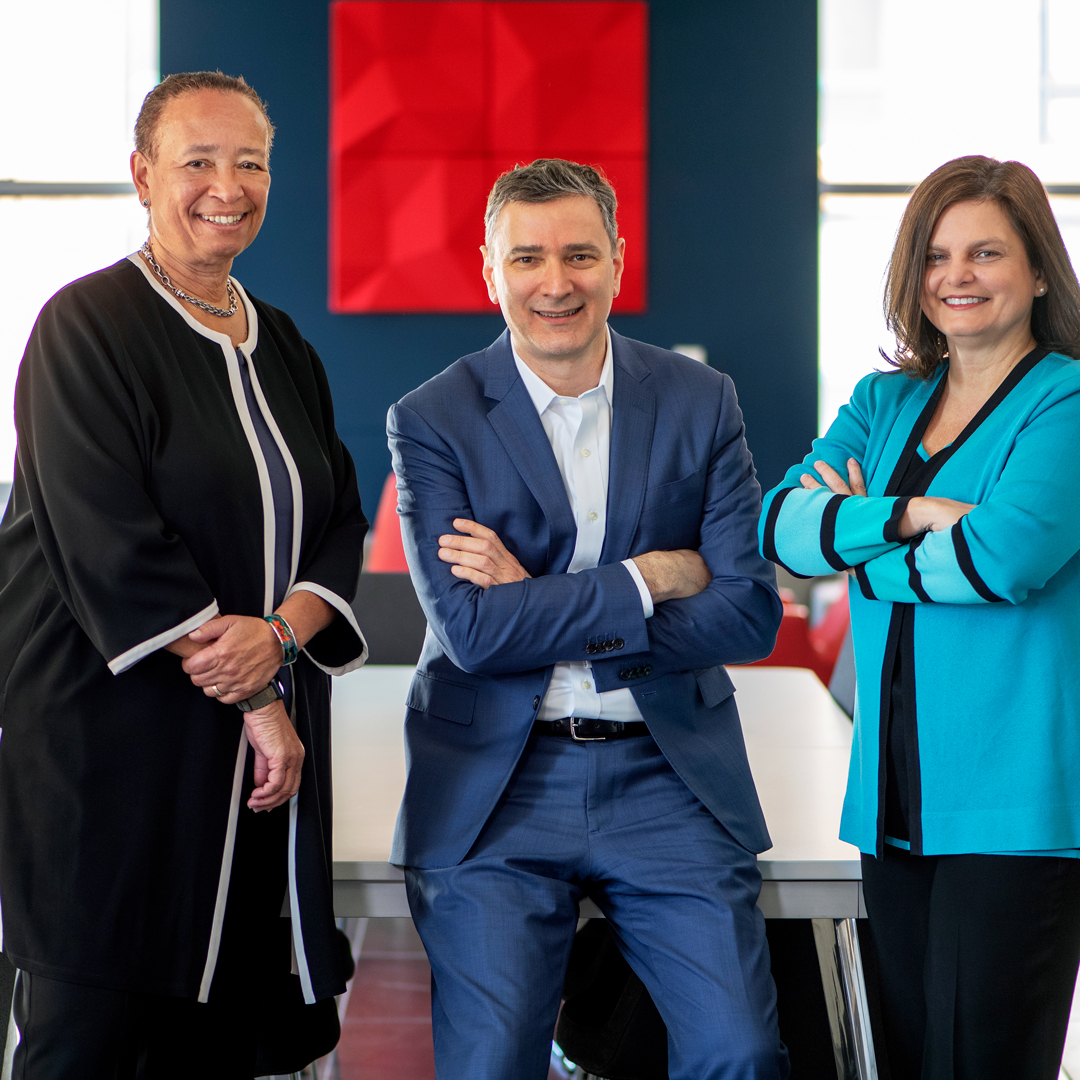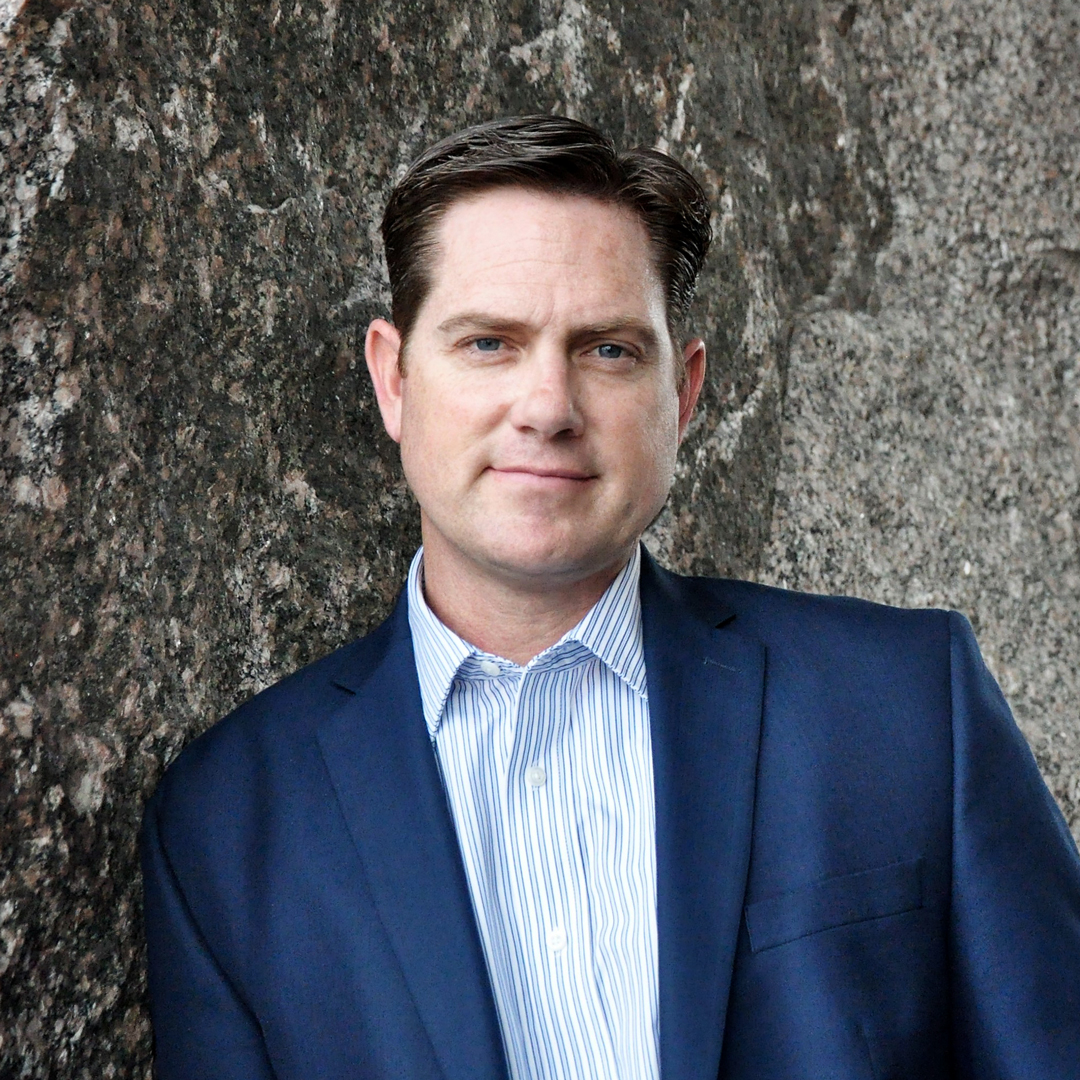Unlike many general counsels, George Scott never thought law would be his end goal. An esteemed football player and accomplished musician in college, he wanted to pursue a career that helped people while also exercising his passions. In adulthood, Scott realized that his passion for sports and music would not necessarily grant him stability in his future, but they would be his key to opening doors to discover his end goal.
“At a young age, my overall concept of my future was through the lens of an athlete,” Scott says. “I didn’t rely on having financial security through my sport, but it was definitely the reason why I went to school and was able to pay for it. It opened a lot of avenues for me. But I always knew that I was going to do something else to satisfy my mission to help people.”
Just days before the NFL draft, Scott terminated his relationship with his agent and devoted himself to the business of music. Though writing and performing were great loves on their own, Scott realized that they taught him how to handle corporate aspects of the field, which inspired him to enroll in business school—and later, law school. At his first law firm, Nexsen Pruet, Scott’s partners recognized him as a rare piece in their puzzle. On top of a background in business, he was filled with firsthand knowledge of sports and entertainment. When an account with a popular entertainer opened, Scott was the obvious choice to take charge. From that moment on, Scott started building a network of athletes, entertainers, and health care professionals, propelling him beyond associate level.
As he climbed the ladder of law, he found that one particular client—Charleston Laboratories (Charleston)—piqued an especially deep-rooted interest. The CEO of Charleston was a former athlete with an objective to create a new pain medication that quelled common side effects for injured patients. Coming from a similar background, Scott immediately felt drawn to the mission. “It was a natural fit,” Scott explains. “I could relate to his mentality of how he wanted to run the business because he had an athlete’s mentality. He understood the bigger purpose. In football, you put in a lot of time and effort for a little bit of success. That translates into the fundamentals of hard work and the nature of business.” Within a few years of working side by side with Charleston, Scott was asked to work in-house and was eventually named their chief legal officer and general counsel.
“We make sure that our patients understand who we are … We are going to do things differently to responsibly help them through recovery.”
Charleston aims to make pain medication more tolerable and to alleviate regressive results. From a patient’s perspective, Scott deems grappling with nausea and vomiting some of the most debilitating side effects of pain medicine. Not only is feeling nauseated universally exhausting, but nausea and vomiting also “detrimentally affect someone’s rehabilitation” by delaying the functionality of the medicine. From a lawyer’s standpoint, Scott understands that with the creation of new medication comes an intricate review process to ensure that Charleston’s practices are matching FDA regulations. With these details in mind, Scott’s approach to law enforces the importance of knowing the framework of the practice, then filling that frame creatively to explore solutions that were not previously considered.
“Our team engages in detailed, strategic conversations multiple times a day to brainstorm approaches or proactively anticipate outcomes,” Scott says. “We challenge ourselves to not just accept the basic, to consider methods that haven’t been done before, and question why they haven’t been done. We’ve learned how to manage that ‘why’ and come up with solutions that work for us. Many times, when you start to look at why something hasn’t been done before, it’s probably because they have never tried it.”
All these solutions work together to support Charleston’s goal of bettering recovery processes for clients. With his childhood ambition of altruism guiding his work, Scott cherishes the company’s emphasis on going beyond the bottom line. As an organization composed of people who have dealt firsthand with the complications of injury, Charleston’s infrastructure genuinely empathizes with those it seeks to help. While his team functions under this common goal, Scott stresses the importance of “making sure individuals understand the value of their role” and “never waste a moment when they take the next step.” The culture of teamwork and efficiency at Charleston lends itself to the identity they share with their clients: “We make sure that our patients understand who we are. We aren’t big pharma and we don’t pretend to be. So we are going to do things differently to responsibly help them through recovery.”
Greenberg Traurig, LLP:
“Greenberg Traurig congratulates George A. Scott Jr. of Charleston Laboratories. We are honored to work with George and Charleston Laboratories in their mission to improve people’s lives around the globe.”
-Bridget Berry, Shareholder


